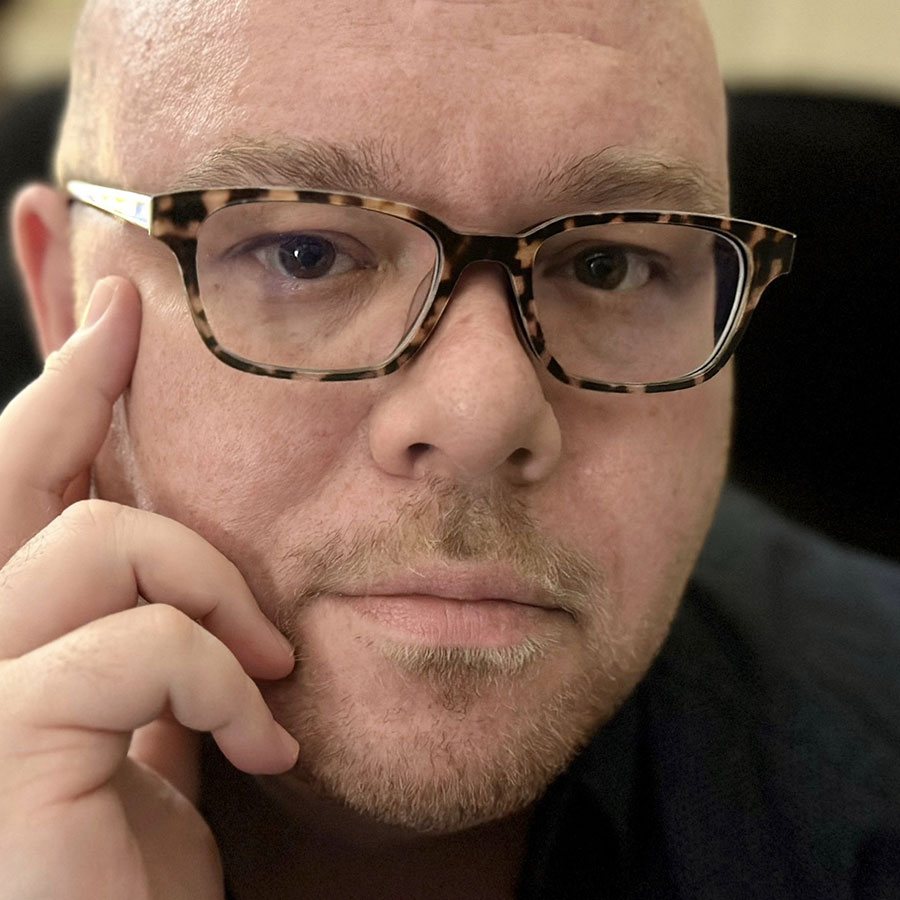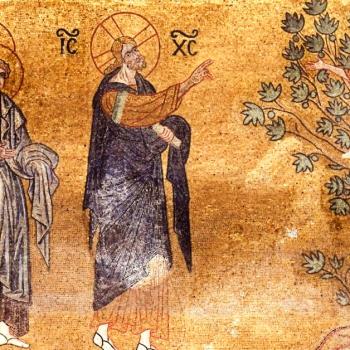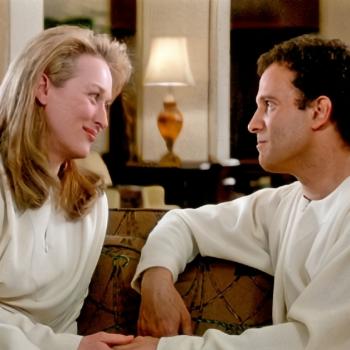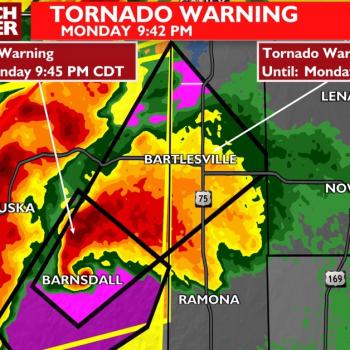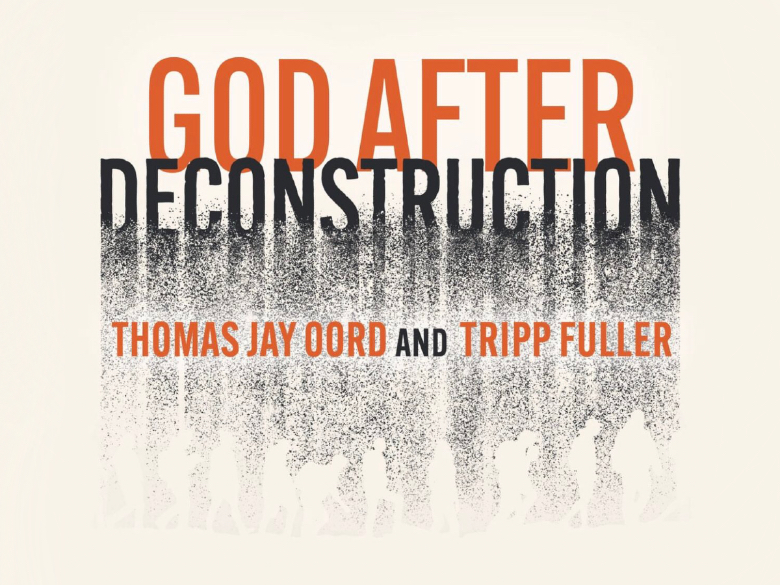
Theologians Thomas Jay Oord and Tripp Fuller have just released a new book titled God After Deconstruction that offers hope and healing for anyone who has grappled with faith in the face of tragedy, or those who have questions about what they believe.
As part of my in-depth review of God After Deconstruction, I had the opportunity to interview co-author Thomas Jay Oord. In our Q&A, Tom provides valuable insights into why a rising number of individuals are deconstructing their faith, and takes the opportunity to discuss how uncertainty can be healthy, and even essential.
What Is Deconstruction?
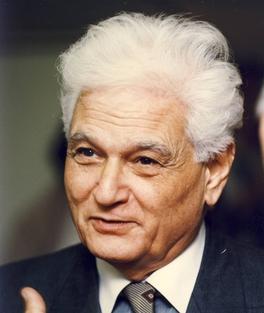
“You’ve Got Questions. We’ve Got Answers” was once a registered trademark for what was a successful consumer electronics retailer. But that company eventually went out of business, and it’s no wonder, because answers to any questions are sometimes hard to come by—and that’s true whether you’re dealing with computers, or even matters of faith.
The process of engaging with questions and the uncertainty that comes with them is called “deconstruction.” Individuals undergoing deconstruction reevaluate their faith by challenging preconceptions to attain fresh insights and reconcile internal conflicts with their personal experiences and external knowledge.
God After Deconstruction is a source of encouragement to anyone who is questioning their faith. Although we all have had different and unique experiences that led us to our present reality, some of the questions that we encounter along the way may be the same.
Profiles in Courage
Authors Oord and Fuller wisely profile real people with real situations and real questions to offer authentic conversations about topics that are not only important, but complicated, sometimes provocative, and often life-changing.
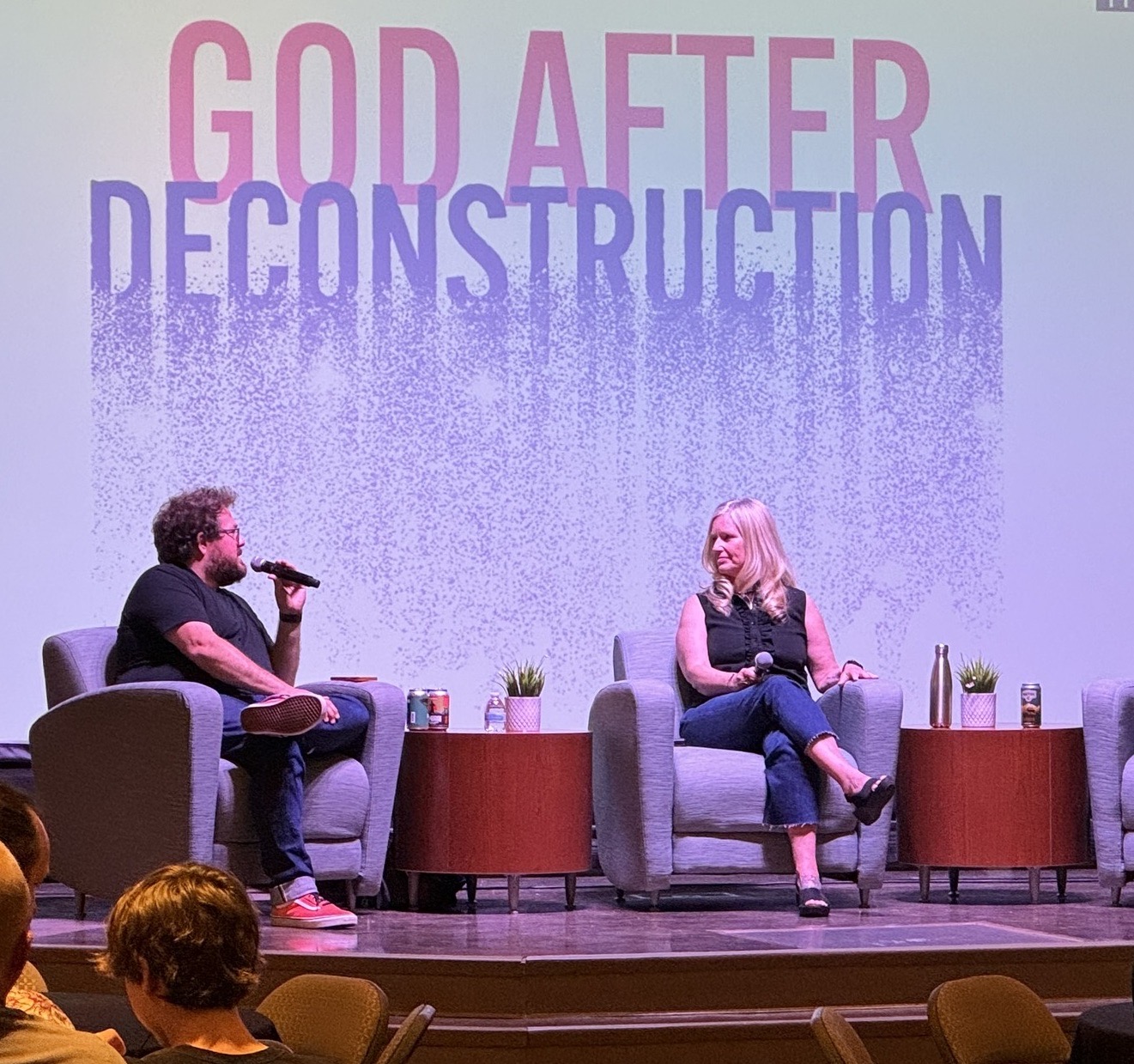
I was instantly engaged as I began reading the adventures of courageous individuals who experienced a variety of circumstances that led to their deconstruction. From ambiguous genitalia, religious abuse, sexual assault, racism, and LGBTQ+ affirmation to evolution, Hell, Christian nationalism, religious diversity, and even Barbie®, God After Deconstruction not only makes the faith journeys of so many individuals accessible to others who may experience similar questions, Oord and Fuller offer targeted guidance that is grounded in scholarship, diverse theology, science, and most importantly experience.
I am excited to recommend this book! It is a must read for anyone navigating through the chaotic world in which we live, or as the authors put it, it’s “an adventure for lovers in tumultuous times.”
Q&A with Thomas Jay Oord
As a theologian, philosopher, and multi-disciplinary scholar, Thomas Jay Oord directs the Center for Open and Relational Theology and leads a doctoral program at Northwind Theological Seminary. With over twenty-five award-winning bestsellers, he’s acclaimed as one of the most influential theologians of the 21st century by Academic Influence, exploring themes including love, open and relational theology, science and religion, evil and power, and the transformative nature of freedom and relationships.
I was honored to ask Tom Oord a few questions about deconstruction and the ideas he and co-author Tripp Fuller propose in God After Deconstruction. (Note: this interview has been edited for length and clarity.)
God After Deconstruction offers targeted advice for deconstructing individuals, and you include great resources in the footnotes. Would you like to share any insights on how you and co-author Tripp Fuller came to recommend some of the advice you give?
Tom: As a public intellectual, I feel a level of responsibility to find plausible answers to the major questions people are asking. As a theologian, my answers often include a theological component. Consequently, I do my best to read widely in theology and in other disciplines.
Part of my calling is to take what I think are good answers—discovered through my own reflection or from others—and put those answers in language most people can understand. I’m never perfect in this; but I do think I’ve improved over the years.
I’m also helped by the fact that I direct doctoral students. Often, the work they’re interested in doing has dimensions I’ve not studied carefully. They introduce me to areas of thinking beyond what I might have otherwise explored.
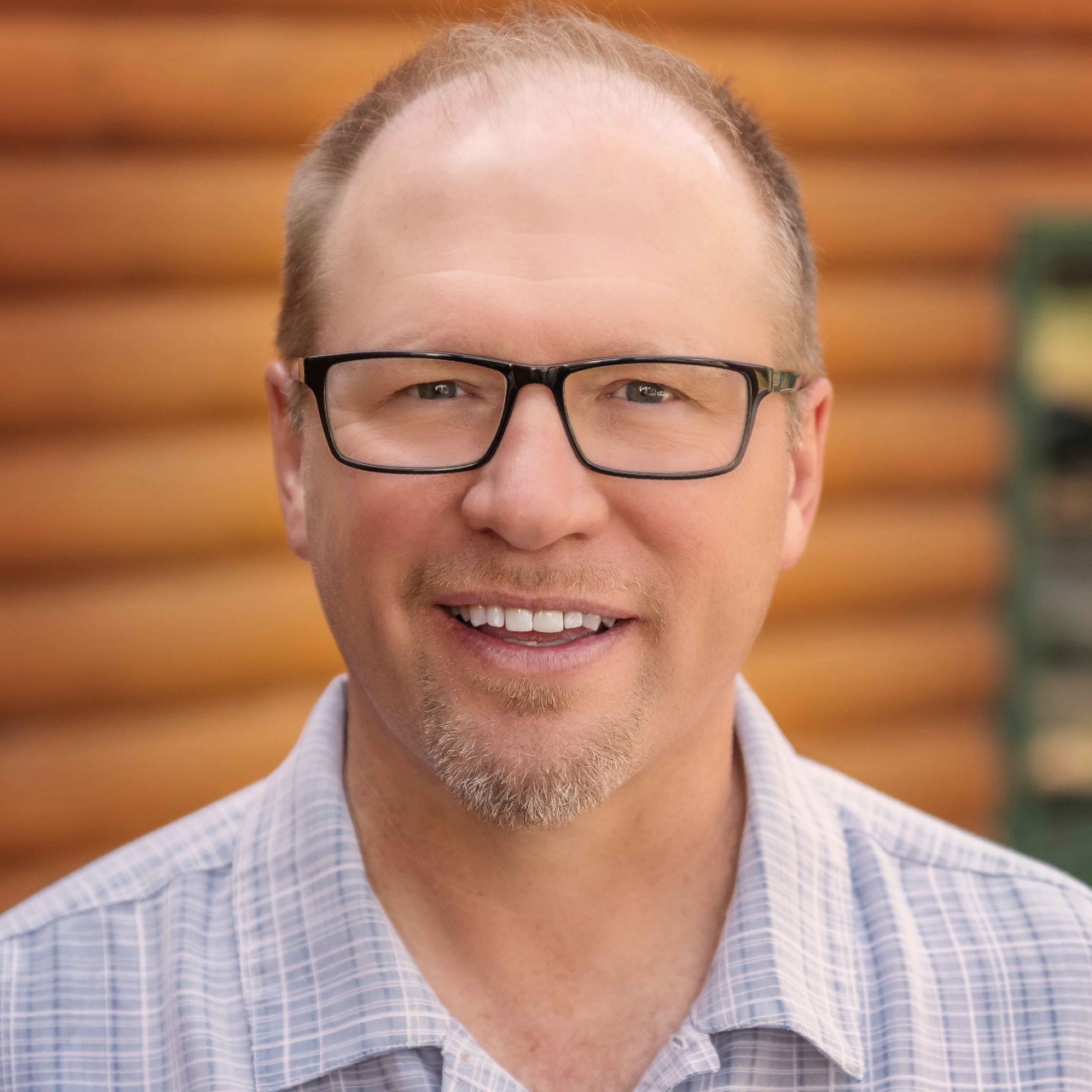
In the book, you share how in graduate school you had the opportunity to read Jacques Derrida and realized that experiences are more fundamental than words. In your opinion, why are individual experiences challenged so vociferously within institutional Christianity?
Tom: Experiences can’t be tamed, boxed, or fully accounted for. They’re fundamental to who we are, but they escape categorization. Without them, we’re nothing.
If we seek certainty, experiences will fail to deliver. After all, they’re fleeting, and they can be doubted. Besides, experiences are often if not always flooded by emotions of various types. And our emotions are only partially self-regulated.
Theologians and religious leaders are easily tempted to think words capture the truth fully or with certainty. Words don’t. Experiences can’t be precisely explained or controlled. They’re not easy to order. Consequently, those who want precision, certainty, and order are wary of individual religious experiences.
Institutional Christianity and many Christian leaders feel responsible to maintain a tradition or meet the expectations of those who elected them. That often puts them at odds with people questioning the tradition and the status quo. Conflict often ensues.
Deconstruction has a deep history, and is a reported experience by a growing number of people who have previously identified as Christian. To me, the real tension is not deconstruction itself or where the journey may lead individuals, but how their experiences are summarily invalidated within many churches and by prominent church leaders. What would you say to those who suggest that deconstruction causes division in the church?
Tom: Deconstruction often does make people uneasy, especially leaders in the [early] simplistic or complexity stages. Such leaders often crave conformity. Institutions and their leaders who prize uniformity will find deconstructors divisive. But it’s the structures that need changing, not the deconstructors who need to be muted.
Sometimes leaders try to “protect” some parts of their following from deconstructors, believing the protected are not yet ready to ask hard questions. And some cases, these leaders are right. Unfortunately, however, deconstructors are left feeling there is no space for their genuine concerns. The wise leader and institution aims to provide space for people on various journeys.
Why do some fear deconstruction?
Tom: There’s a fear of deconstruction that I’m sympathetic to, although I don’t think it should be our first concern. It’s the fear parents and friends have for those who move away from beliefs those parents or friends find meaningful. I understand why parents, for instance, who did their best to educate their children mourn when their children choose something other. In some cases, the children are truly mistaken. But in others, the parents have too narrow a vision.
Holding loosely even those beliefs we deem most important is a virtue most of us need to learn.
As demonstrated by so many of the profiles featured in the book, deconstruction is quite often precipitated by trauma. Conversely, there are so many suffering in our world who fear deconstruction. What are some ways the Christian faith community can embrace deconstruction to therapeutically help individuals who are suffering (even religious trauma)?
Tom: The first step toward embracing those who deconstruct in response to personal trauma is to acknowledge and denounce the harm that brought such trauma. The second step is, when appropriate, is to acknowledge blame for the harm done. Third, repentance ought to be sought, in the sense of attempting to change what produced the trauma. And fourth, people and institutions can play a positive role in the ongoing work of healing necessary.
On a practical level, I encourage teachers, pastors, and other leaders often to add to their speaking qualifiers like “It’s seems to me…” “I might be wrong, but…” “As I currently see it, …” “Maybe…”
A common thread from many of the profiles featured in the book was how shame is sometimes weaponized by the church using a variety of means, such as social exclusion, proof-texting, repressive policies, abusive practices, etc. What are ways that individuals who have previously experienced shame within the faith community can become resources for those who are currently suffering?
Tom: There are few counselors more effective than those who have worked through the problems their clients face. So when it comes to dealing with shame, those who have been shamed and found ways to overcome it are better equipped to help those still feeling the sting of shame.
Crucial in this process is discerning the difference between true guilt and shame. The former can help change our practices from those that cause harm toward those that do good. Overcoming shame often involves coming to understand the intrinsic value we each possess, even when we act in ways that hurt ourselves or others.
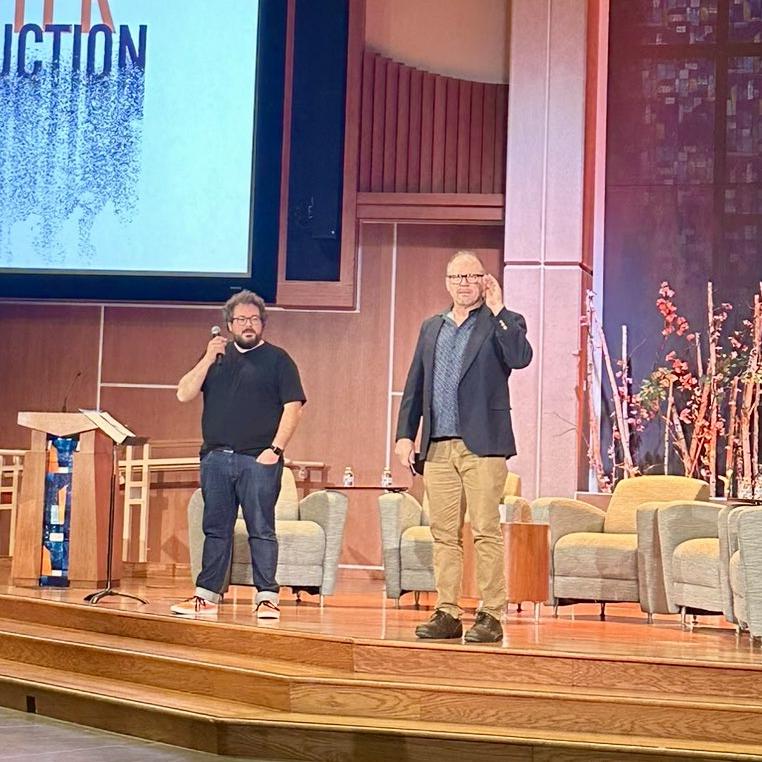
You wrote, “Deconstruction would be less common if faith leaders made humble claims and welcomed difference.” I love that! What are some additional positive behaviors and attitudes the church can embrace to help those deconstructing?
Tom: Here are list of practices and postures the church can take in response to those in the throes of deconstruction:
Patient listening.
Nonjudgmental posturing.
Humility.
Acknowledging guilt or misunderstanding.
Being open to new ideas.
Foregoing defensiveness.
Learning from those outside the church
Caring for the well-being of all, not just insiders.
In coming decades, do you foresee mainstream Christianity transforming in a way that is supportive or even welcoming to those who are deconstructing?
Tom: I’m not good at prognosticating, and not even God can know the future with certainty! But I suspect future Christianity will have more spaces and regular practices that allow deconstruction.
The search for certainty has been present in various degrees throughout religious history. But the modern project heightened its attraction. As contemporary people see the dangers of certainty, I suspect more will see the value of humility, uncertainty, and deconstruction.
By including interactive elements like discussion questions and links to videos, you and Tripp offered readers ways to not only engage with the ideas you wrote about, you actually transformed the book into a conversation. What are some other ways readers can continue the conversation?
Tom: Tripp and I designed a whole online class around these chapters. Check out the Homebrewed Christianity site to find it. For the class, we recorded video conversations and then added additional live event conversations. We’re hoping that the class and videos can be resources for individuals and groups who use the book.
I’ve already heard from churches who are using the book in adult educational settings. We expect the book will be featured on various podcasts, Facebook discussions, book clubs, and classes of various types. The QR codes at the end of each chapter will take readers to these videos.
Finding Love
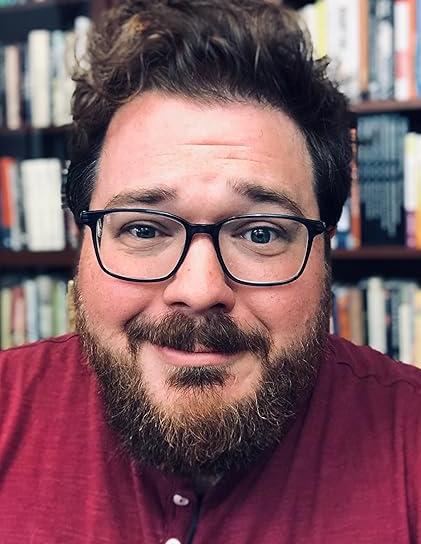
Oord’s co-author Tripp Fuller is a Postdoctoral Research Fellow in Theology & Science at the University of Edinburgh. He received his Ph.D. in Philosophy, Religion, and Theology at Claremont Graduate University. Tripp is the founder and host of the Homebrewed Christianity podcast.
Too many of us have bought and read books that speak in platitudes and tell us once again that water is wet, grass is green, and the sky is blue. But God After Deconstruction is a game-changer. Even more important than the answers it suggests are the questions the authors engage with.
For many conservative Evangelicals, “deconstruction” is a trigger-word, especially for those who fear grappling with questions and doubt. But Oord and Fuller successfully make the case that by dealing with what gives us pause and in some cases destroys our assumptions, we are able to shine a light and uncover both good and evil, what is genuine, and most importantly, what is loving.



